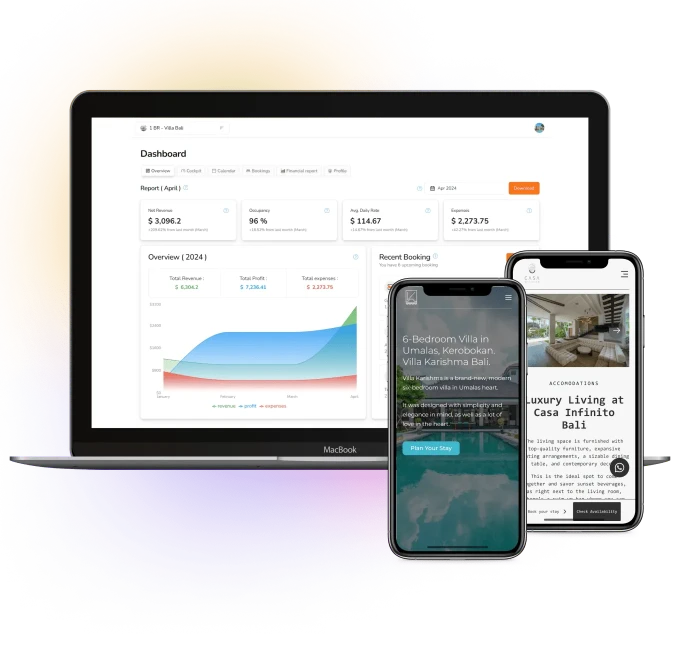One of the most motivating factors for investing, whether they invest in the stock market, bond, or property investment, is to grow one’s wealth. Although investors’ objectives vary—some want money for retirement, while others want to save for other purposes such as expanding their businesses or planning a wedding—the main goal of all investments is to increase their money bags’ size.
While bond and stock investment have a very fluctuating movement, property or real estate investment are having more stable growth from day to day.
Typically, people buy investing on a property or real estate with the intention of profiting from rental income (rental yield). While others invest in property to pursue a higher selling price in the future.
Whatever the purpose is, a good property investor has to know how to measure their return on investment (ROI) to determine one’s property’s profitability. In this article, we are going to cover a few takeaways regarding the importance of property’s ROI.
The Definition of ROI
Return on investment is a ratio of net income (over period) to investment expenses at a particular point in time. ROI is used to measure the effectiveness of an investment.
Projecting a realistic ROI for a rental property can be challenging due to its complex components—certain factors can accidentally be left out from the calculation.
Here’s a general formula to measure how much is the return from your investment portfolio:
Return on Investment Formula [The Simple One]
Basically this formula could be used to calculate any form of investment, not just property but it’s valid for bonds and stocks investment as well.
To determine the profit or gain on any investment, first deduct the entire return from the investment.
As a reminder, ROI is a profitability rate thus it is represented in percentage.
To determine the ROI (percentage), we divide the net profit or gain on the investment by the initial price:
| ROI = | Gain on Investment – Cost of Investment |
| Cost of Investment |
For example, if you buy XYZ Company’s stock for $1,500 and sell it all for the next 3 years for $2,300, then here’s the results:
- Your net profit is $800 > ($2,300 – $1,500)
- Your ROI is 53% > [$800(net profit) ÷ $1,500(cost of investment)]
The Elements of Costs
As we said before, calculating ROI for property investment, especially rental properties can be a little tricky. There are many factors that we should consider, as these components mainly affect your cost and profit, respectively.
These are the elements that shaped your property cost and should be carefully considered in your ROI calculation for your rental property.
Mortgage
Not every investor pays cash for their property, many of them financing their rental property with a mortgage loan that should be settled every month.
So, if you pick a mortgage as a strategy to own a rental property, it will undoubtedly be your largest cost component in calculating your rental property ROI.
Maintenance Expenses
Your building is a tangible asset, that’s why it always needs to be in such great shape. Bad building maintenance eventually will drag your rental property down. Thus, maintenance costs will be one of the important factors to measure your rental property’s ROI.
Property Taxes & Insurance
Your property, as one of the legal objects, is subject to government taxation. So, don’t forget to incorporate tax as a crucial component of costs in your ROI calculation.
Who wants to leave their valuables vulnerable? You can never foretell what will happen in the future. Equipping your rental home with reputable insurance might provide you with a stress-free night’s sleep.
Commission and Fees
You already have a lovely property in a prime location that is ready to rent. However, no one is aware of your stunning property since you are not selling it around.
As a result, whether you maintain all of your listings in an online booking site on your own or entrust everything to an experienced property management company, you will incur an additional expense called commission.
ROI on Rental Property Formula

After you know about a few crucial elements of your rental property’s costs, you can apply this ROI formula based on how you own it. With or without long-term financing.
ROI Formula for Cash-purchased Rental Property.
If you buy a house with cash, calculating the ROI is quite simple. Here’s an example of a cash-purchased rental property:
- The rental property cost you $135,000 in cash.
- Closing expenditures were $1,200, and renovation charges reached $7,200, raising your total investment in the property to $143,400.
- Every month, you collected $2,600 from rent.
After one year:
- During the last 12 months, you received $31,200 in revenue.
- Expenses for the entire year totaled $11,316, which included the electricity and water bill, pool and garden maintenance, property taxes and insurance, and commission for a property management or online travel agents. Or we can say your monthly expenses are $943.
- Your yearly profit was $19,884 ($31,200 – $11,316).
To calculate your rental property ROI:
| 0.138 = | 19,884 |
| 143,400 |
So your rental property ROI is 13.8%
ROI Formula for Financed-purchased Rental Property.
The calculation of the ROI on financed purchases is more complicated. Assume you acquired the same $135,000 rental property as mentioned above, but instead of paying cash, you opted for a mortgage.
- The mortgage required a downpayment of 20% of the buying price, or $27,000 ($135,000 sales price x 20%).
- Closing expenses were higher, as it would be a normal settlement for a mortgage, reaching $2,500 in advance.
- You spent $7,200 on renovations.
- Your total cost would be $36,700 ($27,000 + $2,500 + $7,200).
A mortgage has continuing expenditures as well:
- Assume you took out a 20-year loan with a fixed interest rate of 4%. The monthly installment on the borrowed $108,000 would be $360.
- We’ll add the same $943 per month to cover electricity and water bills, pool and garden maintenance, property taxes and insurance, and commission for a property management or online travel agent totaling $1,303 as your monthly expenses.
- A $2,600 monthly rental revenue.
- So, the cash flow for each month is $1,297 [$2,600 (rent) – $1,303 (mortgage+other expenses)].
After one year:
- At $2,600 each month, you made $31,200 in total rental revenue for the year.
- Your yearly profit was $15,564 ($1,297 x 12 months).
To calculate your rental property ROI:
| 0.424 = | 15,564 |
| 36,700 |
So your rental property ROI is 42.4%.





